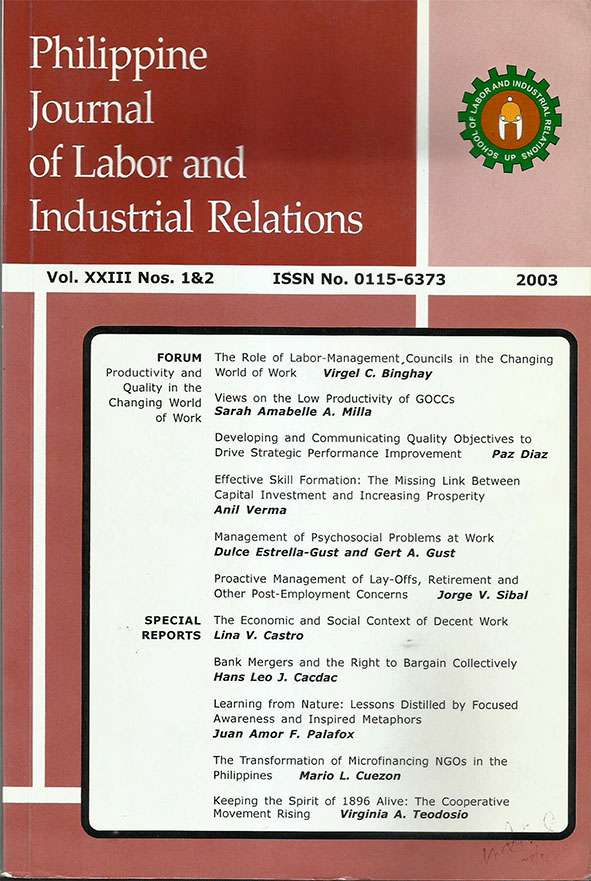The Role of Labor-Management Councils in the Changing World of Work
Abstract
Attributes of a fundamentally new economy, made possible by information technology and the globalizing economy are explored. Competition will intensify as consumers gain direct access to sources worldwide. As a result, average organization size will fall due to firms resorting to automation of business processes, re-engineering, reorganization towards a flatter organization, and far-reaching use of downsizing strategies, including outsourcing. Virtual corporations and flexible work arrangements, including telecommuting, are starting to replace fixed offices and long-term employment contracts. The new century is also deemed to see the rise of an elite group of workers called the multi-skilled, knowledge workers, and the decline in the relevance of the middleman in business transactions.
This shift towards new forms of work and a more complex division of labor requires an appropriate form of representation of workers to protect their interest; a cooperative, rather than an adversarial relationship between management and workers. In the Philippines, this reality has paved the way for the increasing promotion of employee involvement and participatory initiatives at the workplace level, operationalized in the form of Labor-Management Councils or LMCs as commonly referred to.
While the past decades have witnessed LMCs being put up mostly as a venue for discussing grievances or as an alternative dispute settlement mechanism, there is a pressing need to also realize the potentials of LMCs as a venue in discussing ways on how to improve quality and productivity, increase competitiveness of the firm, and at the same time, fair sharing of gains between labor and capital, in purview of the increasing competition and challenges to organizational survival brought about by information technology and the globalizing economy.


